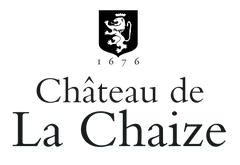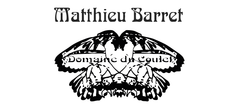France is one of the largest wine producers in the world, and arguably, one of the most significant, with a wine-making history that dates back to the Roman times. Taste through the different wine regions of France, from Bordeaux, Burgundy, Champagne, to Languedoc-Roussillon, Loire Valley, Rhône, Provence and beyond. Each region is known for different grape varieties, a unique growing environment, and their special wine production philosophy.
284 products
- Sparkling Wine
- Sémillon
- Biodynamic, Natural, Organic, Vegan-Friendly
- Dry
- Light Bodied
- 750ml
- 9% alc./vol
About the Winery
Château Barouillet

Chateau Barouillet has been a family business going back at least 8 generations. Vincent Alexis works alongside his father and grandfather to cultivate the land and has moved the winery into organic viticulture, starting to convert the soil in 2010 and fully converting all the vineyards by 2014. In 2020, the obtained their biodynamic certification.
The domaine controls 45 hectares of vines throughout Monbazzillac, Bergerac Pécharmant, and Cotes de Bergerac. Vincent continues to push the biological approach further by working according to the lunar calendar in the vineyards and in the cellar.
- Red Wine
- Carignan, Grenache, Syrah
- Dry
- 750ml
About the Winery
Domaine Frédéric Brouca

Frédéric grew up in Normandy and met his Canadian wife Elaine at university in Lille, Northern France. They live a nomadic lifestyle (Canada, India, Singapore and USA) though Frédéric spends about half of his time in Faugères. Since early age, Frédéric had a calling for farming and the fierce desire to become a winegrower. After completing a Masters Degree in Finance in 2001, Frédéric went back to college for a Sommelier diploma and started his career as a Burgundy wine broker.
In late 2012, Frédéric and Elaine were fortunate to take over 25 acres of old vines in Faugères, organically farmed for twenty years and deeply rooted in schist soils.
2013 was the inaugural vintage for Domaine Frédéric Brouca. In his modest winery in the village of Laurens, Frédéric is creating a new vision for Faugères wines; fresh, vibrant and made without artifice. Nothing revolutionary, simply returning to our grandparent's ideology of farming and winemaking to craft 'Vins Vivants'. The Faugères Appellation is in the heart of Languedoc in the Hérault department. Here, winemaking dates back to the Greek times and was developed during the Roman Era. It wasn't until the early 1900's, however, that the wines became more widely known for its unique schist soils and moderate Mediterranean climate. These villages are heavily reliant on wine as an important part of their culture and economy.
The area is stunning with mountain views and close proximity to the Mediterranean Sea (20 miles / 30 kms). Faugères has a long history of responsible farming. It boasts the highest percentage of organic vineyards for any AOC in all of France with almost 50% of farmers making the choice.
Press Reviews
Wine Align
93 points - Michael Godel
Côte de Glou just has to be a fantasy name, a play of words for a wine that you just want to drink, glug-glug, glou-glou but imagined as from a place that happens to be a hill, slope or coast. This glow is a mix of grenache, syrah and carignan off of hilly Faugères slopes of schist. This is the purest, fruitiest and least swarthy of Brouca’s wines and also the one out of which tannins take the sharpest bite. The least confounding and different of his organic and low-sulphites work, the wine that reeks of purple fruit and florals, of violets and roses, of berries and mineral salts. Tastes this way too, piquant and crunchy, piquing palate and interest. Most representative of Faugères and something for everyone in a glass. Drink 2024-2028. Tasted January 2023.
92 points - David Lawrason
This is an organically grown blend of grenache, syrah and carignan grown in the Faugeres region of Languedoc. It is deeply coloured, and a bit cloudy (unfiltered). The nose shows very ripe blackberry, some meatiness, dried herbs and anise. It is medium-full bodied, highly energized, juicy and firm with considerable tannic grit. Excellent focus and length with a rustic/farmy ambiance. Bordering on a natural wine expression. The complexity and length are excellent indeed. Tasted January 2024
92 points - Sara d'Amato
Schist-grown, 40-year-old grenache, syrah, and carignan from the slopes of Faugères make up Brouca's Côte de Glou assemblage. Supple enough for immediate drinking largely due to the 2+ years of maturation in stainless steel and neutral French oak. A characterful natural, organic, and vegan-friendly wine with no added sulphur. Salty, bright, and clean with notable complexity on the palate that features wet leaves, cran-cherry, plum compote, gentle fruit spice and even a hint of cola. Widely appealing with very good length. Best now to 2028. Tasted January 2024.
91 points -
Brouca's "Côte de Glou" ("slope of glug"?) is a blend of grenache, syrah and carignan from La Serre plateau in the Languedoc appellation of Faugères made 'naturally' (organic farming, no additives). It pours a deep red-ruby and offers a range of wild, earthy, leathery, waxy aromas in the natural wine genre, not to say funky, but a bit wild and oxidative. Fruit is fresh, both dark and red, sitting on a tight frame of gritty tannins and above average acids. I like the saliva-inducing quality, the savoury, umami-rich aspect. It's tough to anticipate the evolution of such wines given the little protection (sulfites) they contain, but I'd suggest another year or two in the cellar for additional complexity and textural polishing. Tasted January 2024.
- Red Wine
- Gamay
- Organic
- Dry
- Light Bodied
- 750ml
- 13% alc./vol
About the Winery
Domaine du Château de La Chaize

Château de La Chaize is among the oldest, most historic estates in Burgundy’s Beaujolais region. Cared for by the same family for nearly three and a half centuries, the estate has been passed on to new owners, the Gruy family, who are equally committed to managing the estate with the utmost care, while implementing an ambitious environmental plan. Among the many initiatives is the conversion of all vineyards to organic farming, the adoption of precision viticulture, reducing carbon their carbon footprint, and recycling every by-product from viti- and vinicultural activity, to achieve zero waste.
Founded in 1670 by the seneschal of Lyon François de la Chaize d’Aix, the main Château de la Chaize building and gardens were completed by Jules-Hardouin Mansart and André le Nôtre, respectively architect and gardener of the Château de Versailles. Château de la Chaize is among the oldest, most historic estates in Burgundy’s Beaujolais region. Boasting over 250 acres of vineyards, it is also one of the largest. It is today considered one of the most innovative estates in Burgundy. Among its forward- thinking practices is the adoption of eco-friendly farming techniques, commonly referred to as Agriculture Raisonnée. Chemical treatments have been reduced to a strict minimum, for example, and the growing of grass between rows has been re-introduced to enrich the soil and reduce erosion.
Press Reviews
Robert Parker
90 points
The 2019 Brouilly opens in the glass with notes of cherries, peonies, orange rind and warm spices. Medium to full-bodied, ample and lively, with powdery tannins, attractive purity of fruit and a precise finish, it continues this cuvée's upward trajectory. – W.K. Tasted in August, 2021.
Wine Align
90 points - Sara d'Amato
A charming Brouilly sourced from 11 differed cadastral lieux-dits (vineyards) including "La Chaize" which is a monopole of the aptly named Château de La Chaize. Generously aromatic and still vibrant with delicate notes of black pepper, fresh raspberry, cran-cherry and licorice. Featherweight tannins and well-balanced acidity make for a ready-to-drink find. Excellent length. Tasted June 2022.
James Suckling
90 points
The effusive violet and blackcurrant-pastille aromas draw you into this elegant and silky, mid-weight Brouilly with excellent harmony right through the long finish… this will keep, but why wait when it tastes so good already? Drink now. – Tasted in April, 2021.
- Red Wine
- Syrah
- Biodynamic, Natural, Organic, Vegan-Friendly
- Dry
- Medium Bodied
- 750ml
- 12.5% alc./vol
About the Winery
Domaine du Coulet - Matthieu Barret

Matthieu Barret was born in Aix-en-Provence in 1975 and studied viticulture in Beaune.
He is the 7th generation vigneron and joined his grandfather in Cornas in 1997. Previously, his family had only been farming and selling grapes. He practices biodynamic viticulture, obtaining very low yields (23 hl/ha) and extraordinary quality. He describes his wines as being 100% grape, with a very low sulphite addition. His wines are extremely clean, and, true to the Cornas character. Domaine du Coulet was founded by Matthieu Barret’s grandfather after WWII, and over the years has supplied grapes to some of the best known producers in the Northern Rhône, including Chapoutier and Delas. While his father eschewed the agrarian lifestyle, opting instead for a career in international business, Matthieu knew early on that he wanted to be a vigneron. In 1998 at the age of only 23, he took over the family’s 25 acres of well-situated vines on the terraced hillsides of Cornas.
From the beginning, Matthieu has employed natural, organic practices and by 2002 (his second year of production) the domaine received its biodynamic certification. With each vintage, Matthieu has gained a better understanding of his vine parcels and through thoughtful experimentation, he now turns out a remarkable selection of Cornas wines that express the unique nuances of each micro-terroir. No new oak, no racking, minimal use of sulfur and no fining or filtration. Pure, sexy Syrah.
- Sweet Wine
- Gros Manseng, Petit Manseng
- Natural, Organic, Vegan-Friendly
- Medium Bodied
- 750ml
- 12.00% alc./vol
About the Winery
Clos Lapeyre

This family farm was traditionally dedicated to mixed farming with livestock, small fruits and grapes which were taken to the local cooperative. From 1985 onwards, the estate was turned over exclusively to viticulture when Jean-Bernard Larrieu gave birth to Clos Lapeyre.
Clos Lapeyre is a 12 ha domain owned by the Larrieu family, in Jurançon, Southwest France. It is situated south of Pau, nestling on steep slopes facing the Pyrenees. The vineyards are planted on terraces at an altitude of 250 m. Jean-Bernard Larrieu makes the wines, and his aim is produce wines that express the specificity of the grape varieties and the soils (pebbly clay/limestone and silex). The wines are certified Organic.
- Red Wine
- Cabernet Sauvignon, Merlot, Petit Verdot
- Dry
- Residual Sugar: 2 g/l
- Full Bodied
- 750ml
- 13.00% alc./vol
Press Reviews
Wine Align
92 points - Michael Godel
Always fun to have a gander backwards in Bordeaux, here from the 2008 vintage in the Macau en Médoc region near Margaux. The chateau dates back to the 1700s and this two-thirds to one-third cabernet sauvignon to merlot Haut-Médoc is quite youthful as compared to the 2006. A combination of reasons it would go to show, for one being two years apart and second a matter of comparative vintages. The ’06 is not one of greatest longevity while ’08 surely sneaks under the radar with aging capability. That said, as with the 2006, aeration causes a noticeable oxidation and decreased fruit energy. The wood still breathes, shows and exerts power, the secondary notes are in play but no real tertiary at this 13 year stage. Cool, mineral-licked, deeply resonant, roses and tar, even Cassis in its ethereal liqueur. Most definitely worth the price of admission, without a decant and a quick pour through six glasses. Drink 2021-2025.





























